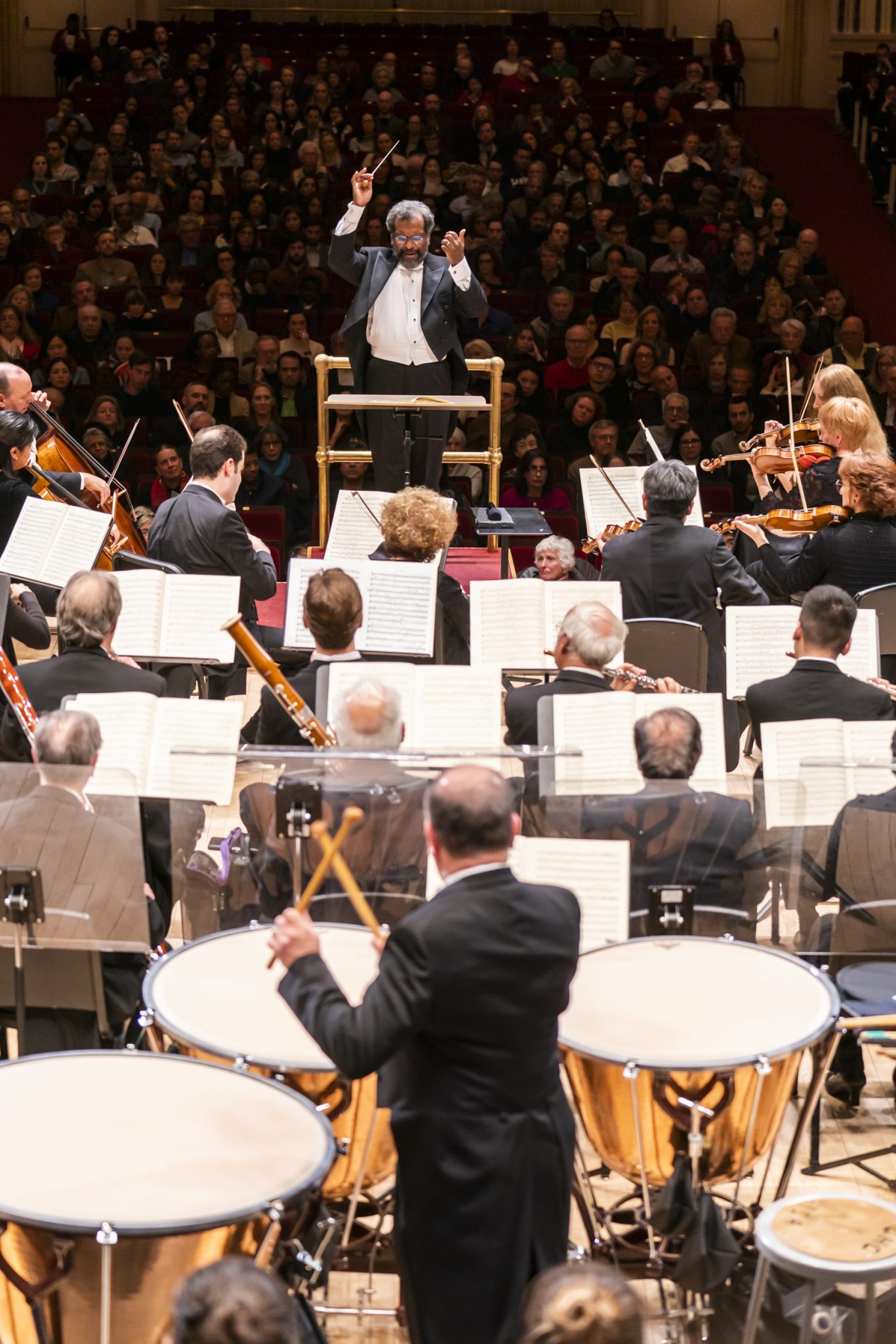Harmony Across Horizons
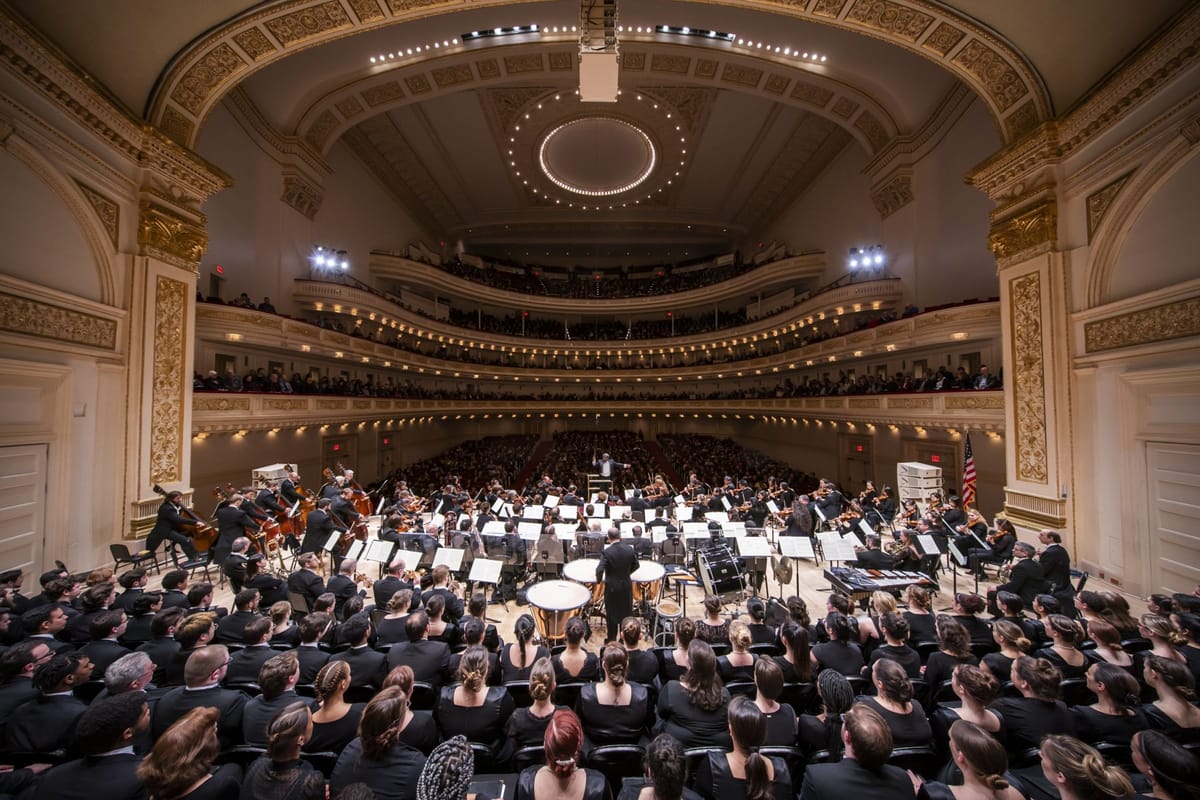
Ever since the upsurge in targeted violence against the Rohingya since August 2017, Médécins Sans Frontiéres (MSF) has been the most effective international organization providing sustained medical help to the refugees in Bangladesh. The benefit concert at Carnegie Hall on January 28, organized collaboratively by the MSF and Music for Life International (MFLI), was an attempt to raise financial resources for continuing the humanitarian efforts of MSF, and one that hopefully also reminded a world often inured to large-scale tragedies of the ever-worsening plight of the Rohingya.
The MFLI, which takes its name from the legendary Music for Life concert organized by Lenoard Bernstein for people affected by HIV/AIDS in 1987 at Carnegie Hall, is by now a well-known social enterprise that seeks to use the emotional reach of music to create awareness of major international humanitarian and political crises across the world. Under the baton of its artistic director, the conductor P. George Mathew, MFLI’s concerts in the past decade have included – to name just a few – Mahler for the Children of AIDS (2009), Shostakovich for the Children of Syria (2014), and The Scheherazade Initiative (2015), focusing on sexual violence. The January 28 program, titled Beethoven for the Rohingya, comprised of the monumental Ninth Symphony and the Elegy for Violin and Orchestra by American composer David Amram.
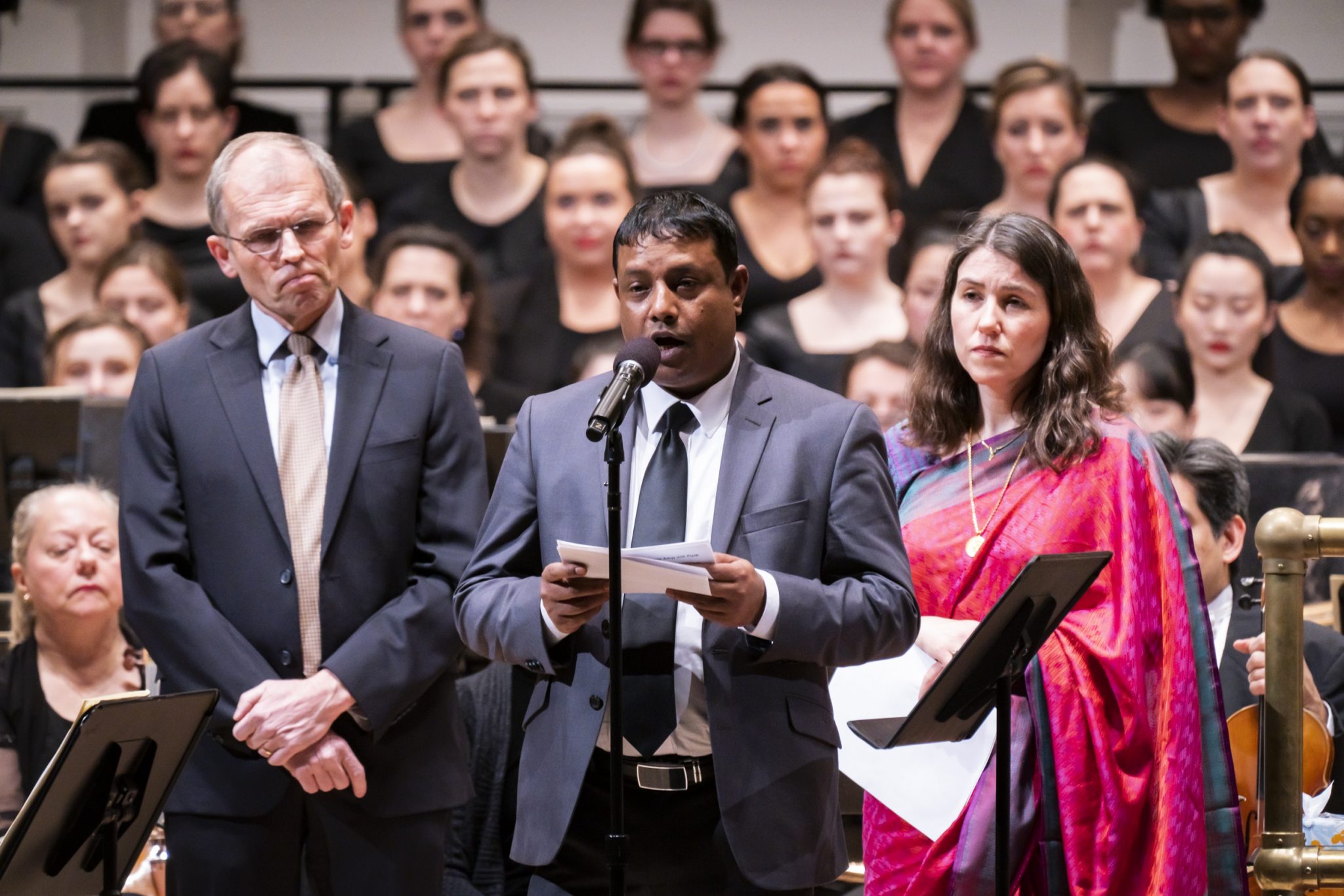
The performance itself was preceded by opening remarks delivered by Dr. John Lawrence – president of the Board of Directors of MSF-USA – emphasizing the remarkable work of medical aid that the organization has been undertaking for almost half a century, one which at present spans 70 countries. He also focused on the specific problems that the MSF is trying to address at the Cox’s Bazar district in Bangladesh, where the vast majority of Rohingya refugees live in precarious temporary settlements. Dr. Lawrence spoke with a mixture of passionate attachment and dispassionate analysis that was worthy of the occasion. The vast scale of the issues he discussed, and his reminder that a benefit concert could only be a tiny contribution towards relief activities, served to remind us in the audience of both how privileged we are to be able to take basic freedoms such as the right to liberty for granted, and of the necessity of defending such freedoms against sectarian violence.
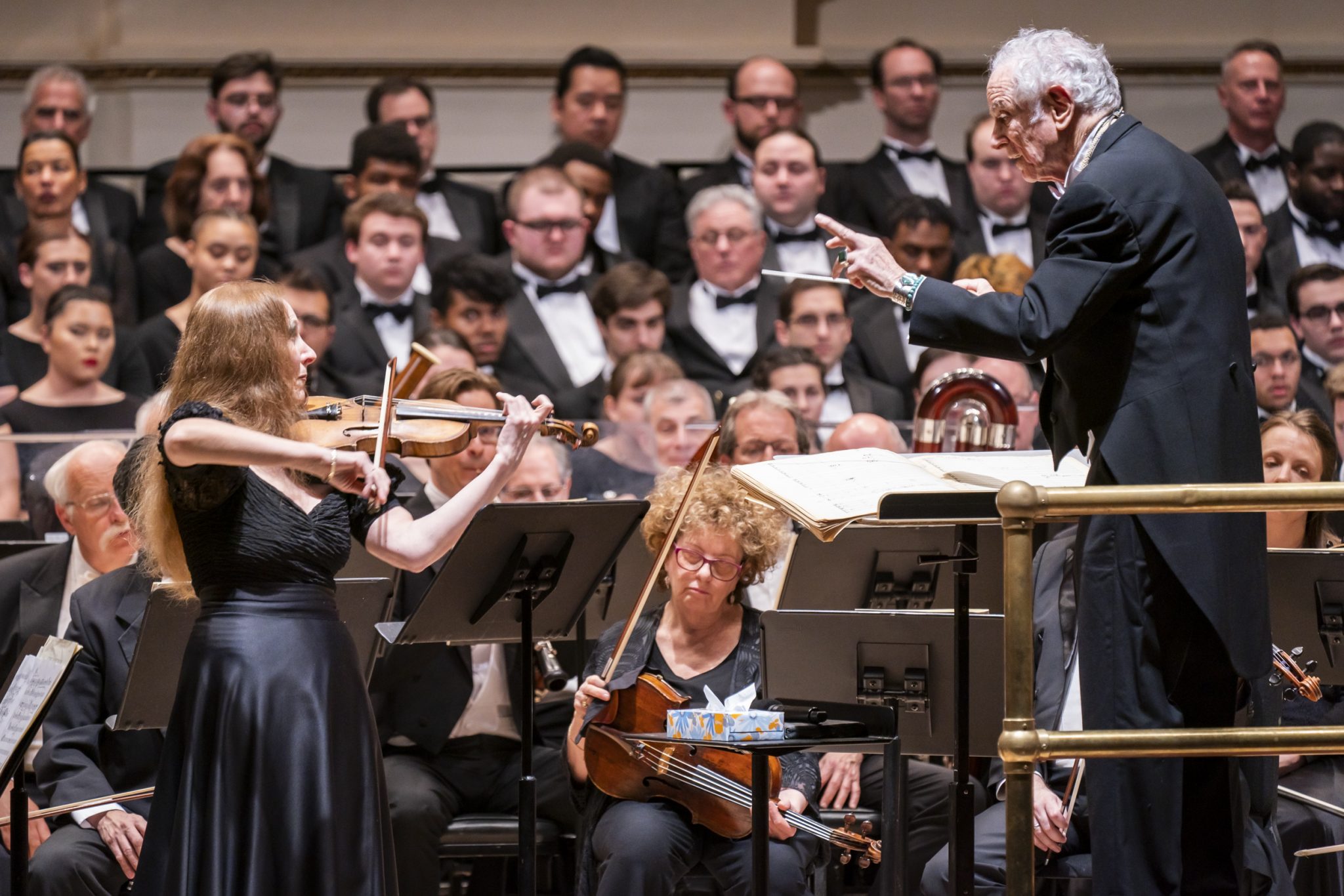
The music began with David Amram’s Elegy, with the composer himself at the conductor’s podium for this special performance. The work had premiered in 1971, and was originally commissioned by members of the Queens Symphony Orchestra in memory of Jeanne Dale Katz, whose commitment to bringing classical music into the lives of children had made possible for thousands of young people to discover its joys. ‘Elegy’ is an apt word for the piece, and perhaps also an apt one for the occasion, if only in an ironic way. Certainly, a mixture of melancholic longing for an irretrievable past, and a guarded, almost meditative reflection on future possibilities characterized the music. There was brilliant use of the entire range of orchestral timbres and of sharp rhythmic sections that punctuated and therefore set in starker relief the more lyrical moments of introspection, testimony perhaps to both Amram’s long personal engagement with Jazz, and to late twentieth century anxieties about the role of art in making sense of a world that is simultaneously more interdependent and yet more fractured and strife-ridden than ever before. Soloist Elmira Darvarova brought the piece to life through a combination of her warm and luscious tone, and with a minute eye for details.
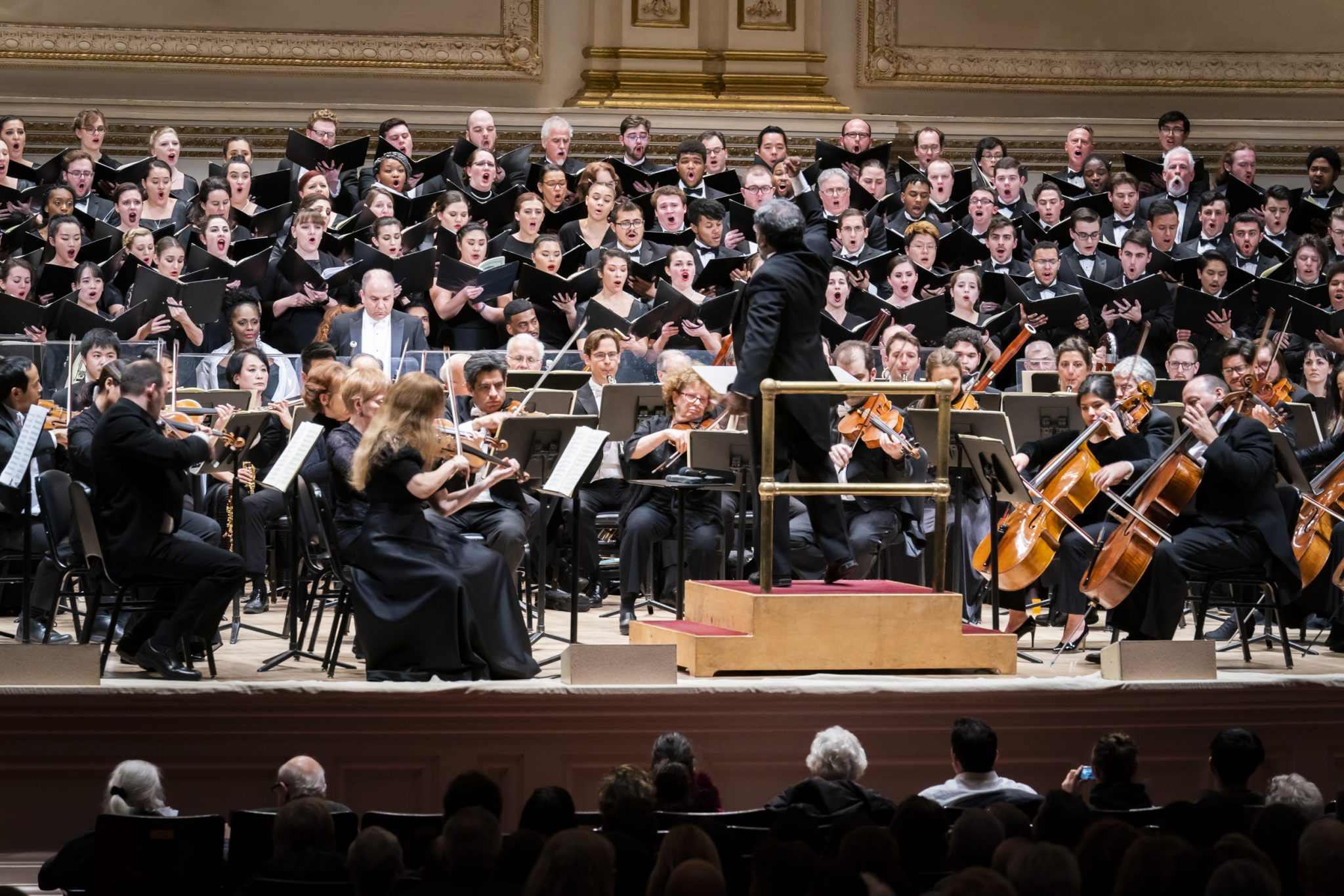
Beethoven’s Ninth Symphony, a work that needs no detailed introduction to its history, followed the Elegy. George Mathew took up the baton, and the Montclair State University Chorale joined the MFLI orchestra for the performance. The first movement, well known for its emphasis on the emergence of sound out of silence, had reinvented the notion of a symphonic opening, and as professor Walter Frisch pointed out in his program notes for the evening, it was an affirmation by Beethoven of the German Idealist insistence that the meaning of “being” can only be understood as a process of “becoming,” one in which the arts has a significant role to play. In the second movement, uncharacteristically for it’s a time a Scherzo rather than a slow movement, fugal exposition plays a large role in the unfolding of the main theme, and it is followed by a glorious Adagio, the expansive and generous character of which one can perhaps interpret as a reminder that the world is large enough for us all if only we try. In the final movement, Beethoven famously set Friedrich Schiller’s Ode to Joy to one of the most well-known tunes ever since, and the way the movement traces the entire range of emotions from despair to deliverance is at times overwhelming for the senses. The vocal soloists, Indra Thomas (Soprano), Sarah Heltzel (Mezzo-Soprano), Sean Panikkar (Tenor), and Solomon Howard (Bass), brought precision and passion in equal measure to the music, and the intensity of the choral finale was a veritable feast. Like the first movement’s promise of discerning sound in silence, the final one stands steadfast in its belief that a better future worth having is always a possibility, even in the midst of hopelessness.
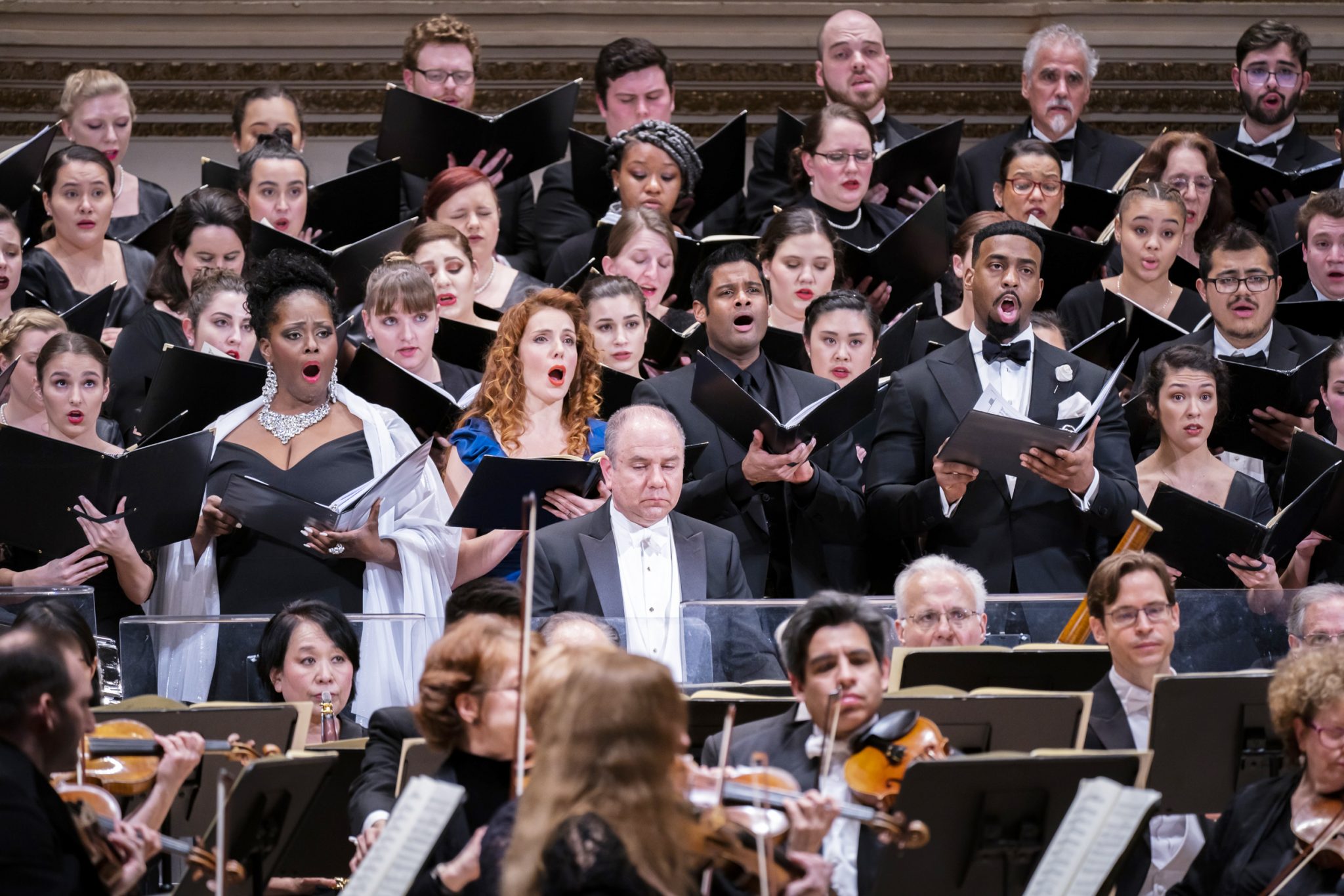
In many ways, the organization of the concert itself was a reflection of its purpose. The vocal and instrumental performers on the night came from as many as 94 different musical institutions and orchestras across the United States, hailing from 33 different countries. They generously used their spare time to do their bit for a pressing issue, and surely their contribution will help, however marginally, the admirable efforts of the MSF towards helping the Rohingya. As Dr. Lawrence quipped in his opening remarks, “orchestra without borders” could certainly be an apt title for the night’s group of performers.
Since the concert provoked a sense of both the importance of the event, as well as one of its own incompleteness, it will be fitting to close with the ways in which further critical reflection and intervention might proceed. Violence against the Rohingya is not unprecedented. Its roots can be traced historically to the late eighteenth and early nineteenth century, when international boundaries between present-day Myanmar and undivided Bengal did not exist, and when the extension of the Bengal Presidency by the British East India Company to the Arakan division of erstwhile Burma, encouraged a migration of Bengali workers from Chittagong (present-day Bangladesh) to the fertile valleys of the Arakan to seek work as farm labourers. The persistence of this migration into the early twentieth century, and the fact that the majority of migrants were Muslim, is what provoked the brutal waves of violence against the Rohingya that has lasted for the past century. We need a more comprehensive historical understanding of the precise character of the social transformations of the past two centuries, to enable us to think more concretely about the future political possibilities of the region that music helps us to identify with sensuously. We also need greater awareness of the varied consequences besides poor medical outcomes of the continued waves of migration. For example, journalists have recently reported that owing to the need for both space and wood to build settlements, the region surrounding Cox’s Bazar has witnessed extreme deforestation, leading to devastating environmental impacts such as increasing soil erosion and the risk of land-slides and flash floods during the monsoon. Ultimately, only a strong political and social movement armed with a nuanced knowledge of the past and a bold vision for the future can provide the grounding to realize the possibilities that music intimates to us, and towards which both MSF and MFLI are unremittingly working. Let us hope that concerts such as the this one can be the stepping-stones towards such alliances in the future.
